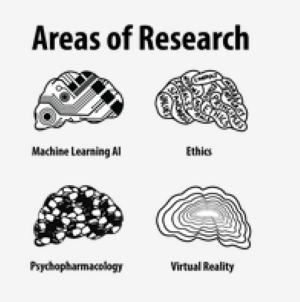Research
Research in forensic psychiatry is subject to various hurdles, e. g. the patient population being specifically vulnerable due to their involuntary admission and treatment. Yet, it also holds its own potentials: In treating this specific patient population for many years in a highly monitored setting with many legal constraints, we are dealing with research conditions rarely found in general psychiatry. The result is a wealth of information and data – in our case, on offender patients with SSD. Our research group aims to analyze this rich data set exploratively using modern statistical methods - machine learning (ML) - to better understand the pathways from SDD to violence and offending. In addition to analyzing forensic patients’ data, we use comparisons to non-forensic patients to examine possible differences. Ultimately, these findings should lead to the development of clinical tools useful in predicting aggressive and offending behavior.
Furthermore, we aim to enhance the long treatment courses of our SSD patients with modern therapies, and to evaluate the possible effects of the interventions. Our focus lies on alternative psychopharmacological interventions and the use of modern multimedia devices, such as virtual reality.
Last but not least, as forensic psychiatry in general operates in a sensitive social and ethical area, we explore and comment on ethical implications of ML in forensic psychiatry, particular courses of treatment for difficult patients, and ultimately the issue of coercive treatment.
